
KUALA LUMPUR, May 8 – More parties are weighing in on the legality of the removal of V. Sivakumar from the office of Perak State Assembly Speaker and the election of his replacement, R. Ganesan, the ex-assemblyman for Sungkai, as well as two other motions.
Lawyer and president of the National Human Rights Society (Hakam) Malik Imtiaz Sarwar disagreed with the views of Datuk Hafarizam Harun and Datuk Muhammad Shafee Abdullah, who have been quoted as saying the motions passed yesterday were legal.
“I don't agree with the views expressed by Hafarizam and Shafee. I don't see how it can be valid,” Malik Imtiaz told The Malaysian Insider today.
He noted there were too many questions on the procedures that took place inside the assembly chambers, casting doubt on its legality.
“In the first place, the question is how is it that the sitting came to that part where YB Hee took over the proceedings?” he asked, referring to Hee Yit Foong, the Jelapang assemblywoman and deputy speaker.
“If Sivakumar was rightfully there, how could she have taken over?” he added, referring to Hafarizam's explanation which cited Article 36A (1)(b) of the Standing Orders allowing the deputy Speaker to act in place of the Speaker.
Imtiaz said he had heard conflicting versions of yesterday's events, including one that claimed Sivakumar was absent from the chambers at one point during the proceedings.
He also questioned the presence of plainclothes police officers inside the chambers.
“The police have absolutely no power in the assembly chamber,” he said, and referred to the earlier statements made by then Home Minister Datuk Seri Syed Hamid Albar and the Inspector General of Police in March after Pakatan Rakyat MP Karpal Singh was roughed up in Parliament.
Syed Hamid and Tan Sri Musa Hassan had both affirmed the police could not interfere in the assembly chambers even if there was a fight and only the sergeant-at-arms had the power to arrest.
“The police acted without authority. They had become in effect agents of a political party rather than an independent enforcer of the law,” said Imtiaz, stressing Sivakumar was still the proper Speaker at that point in time.
While he stresses his views did not mean the Pakatan Rakyat (PR) lawmakers were absolved from any wrongdoing, he rejected Datuk Seri Zambry Abd Kadir's explanation that the BN had no choice but to call in the police when things got heated.
“They said they had no other choice but that's not true. They could have filed for a court order and cited Sivakumar for contempt of court. They did not do so and resorted to self-help but self-help is not allowed under our legal system,” Imtiaz said, heatedly.
“In fact, that force had to be resorted to – by using the police to forcibly remove Sivakumar from the chamber without basis – it is indication enough that Barisan Nasional did not have a political or legal solution to the difficulty it found itself in.”
He also questioned: “At which point did the assembly begin?”
“If Raja Nazrin's speech was to start off the session how could they conduct any business before that?” he asked.
He highlighted the Raja Muda of Perak as Prince Regent, who was to open the assembly, had entered the chambers only at about 3pm, after the tussle for the Speaker's seat and after three other motions – Ganesan's election as Speaker, new members for a side committee and declaring invalid the previous Pakatan Rakyat-mooted sitting under a tree – were passed in.
Imtiaz also pointed out that the assembly had also flouted other conventions, including not holding the swearing-in for Ganesan to be Speaker. This, he noted, was usually held in another ceremony at another time before the ruler.
“These are the things that give me doubt as to the validity of the motions passed,” said the lawyer who was recently the recipient of an international human rights award.
“Ultimately, there is a stalemate here,” he said, and added if Prime Minister Datuk Seri Najib Razak was “sincere about 1 Malaysia, he cannot allow the BN to condone such actions.”
For constitutional law lecturer from International Islamic University, Professor Abdul Aziz Bari, “the writing is on the wall”.
Abdul Aziz said he agreed with PR's Datuk Seri Mohammad Nizar Jamaluddin that yesterday's sitting was “illegal and unconstitutional.”
“As far as I'm concerned, the way they went about to elect the new Speaker is wrong. The Speaker is still Sivakumar,” said the academician.
He noted that the chain of events from February 5 up to yesterday – from the political crossovers of the elected representatives to the court rulings overturning Sivakumar's decisions to suspend the assemblymen – made it, at best, “highly dubious” that yesterday's motions were legal from his point of view.
Like Malik Imtiaz, Bar Council president Ragunath Kesavan agreed the Perak situation had come to a point where there was no way out but for the Sultan of Perak to dissolve the assembly and pave the way for fresh elections to clear the existing mess.
“Our position is that the legal side will not resolve this because every lawyer has a different view,” he told The Malaysian Insider over the phone.
“Personally, I think there are arguments for and against. One point is when is the commencement of the sitting? Another is whether the Speaker has the power to reject the tabling of the motions.” he said.
“But PR is a minority now and BN has a stable majority with 28 plus three independents,” he added.
Ragunath stressed the best way out of the problem was to place the decision in the hands of the voters.
“I don't think in a democracy, to go back to the people so soon after the general elections is a problem, he said.


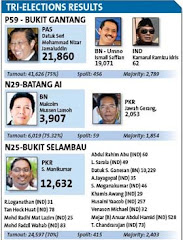

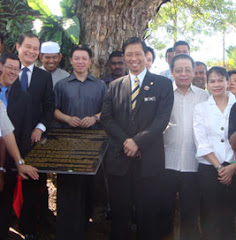
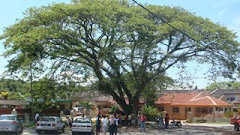
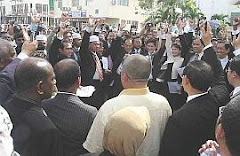
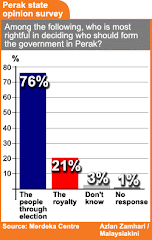

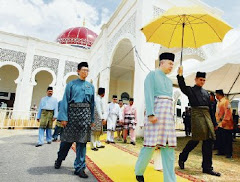
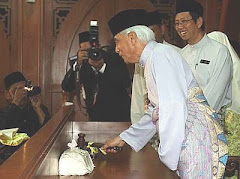
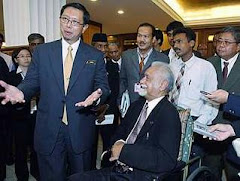
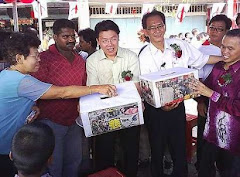



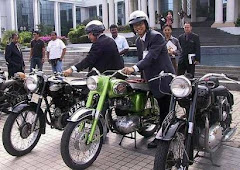
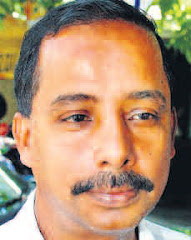
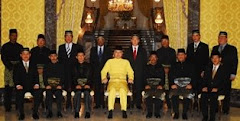


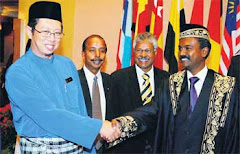
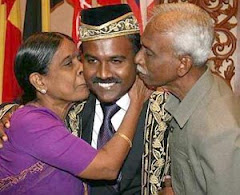
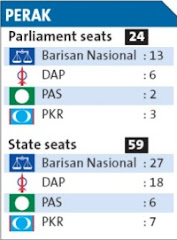

1 comment:
hallo,
can i know about you
yhanks
Post a Comment